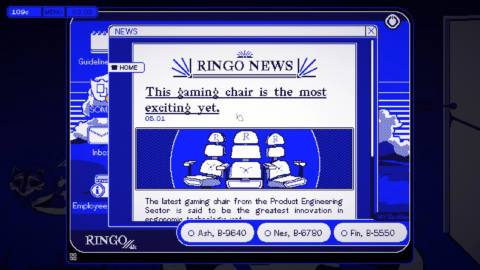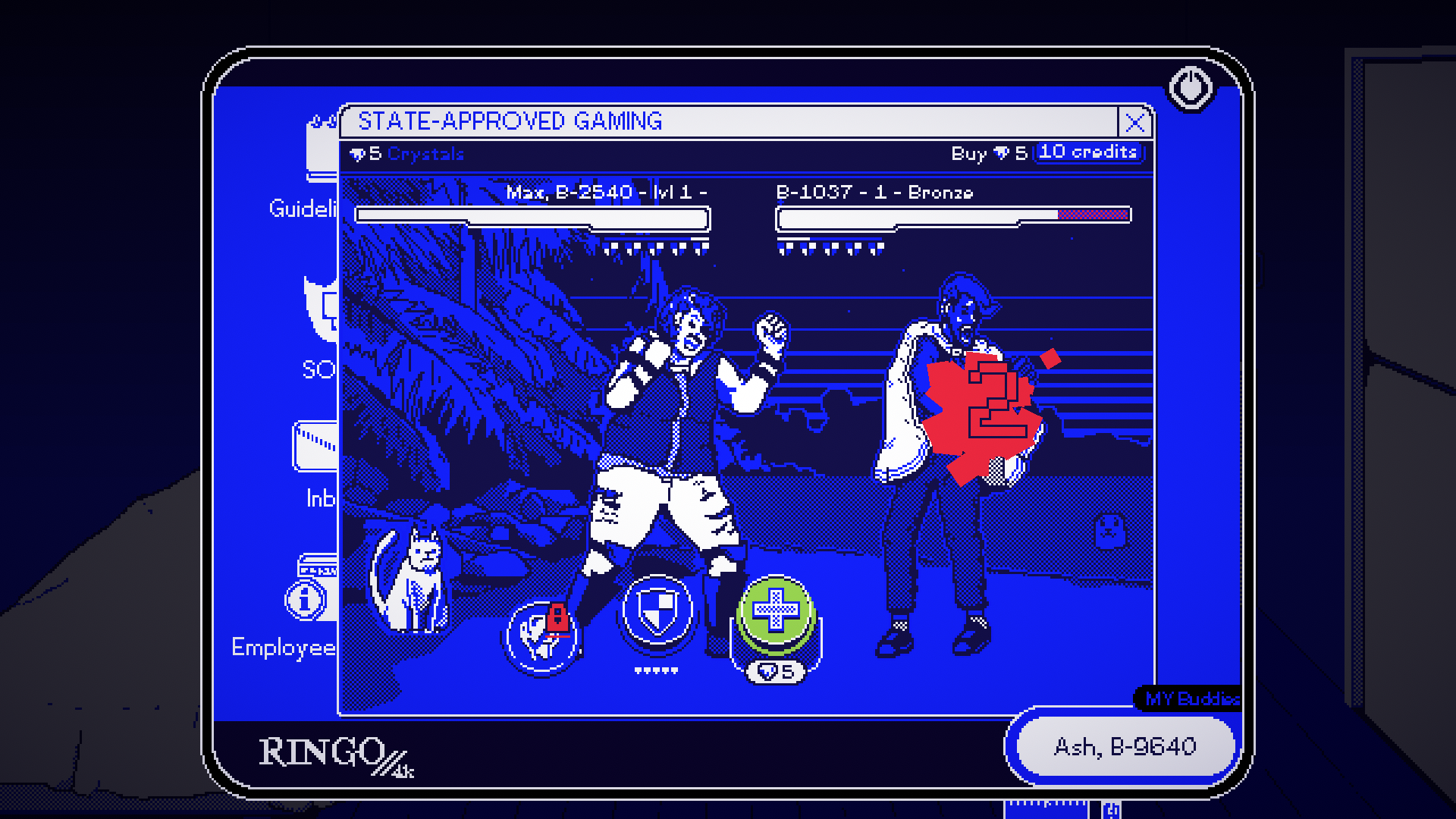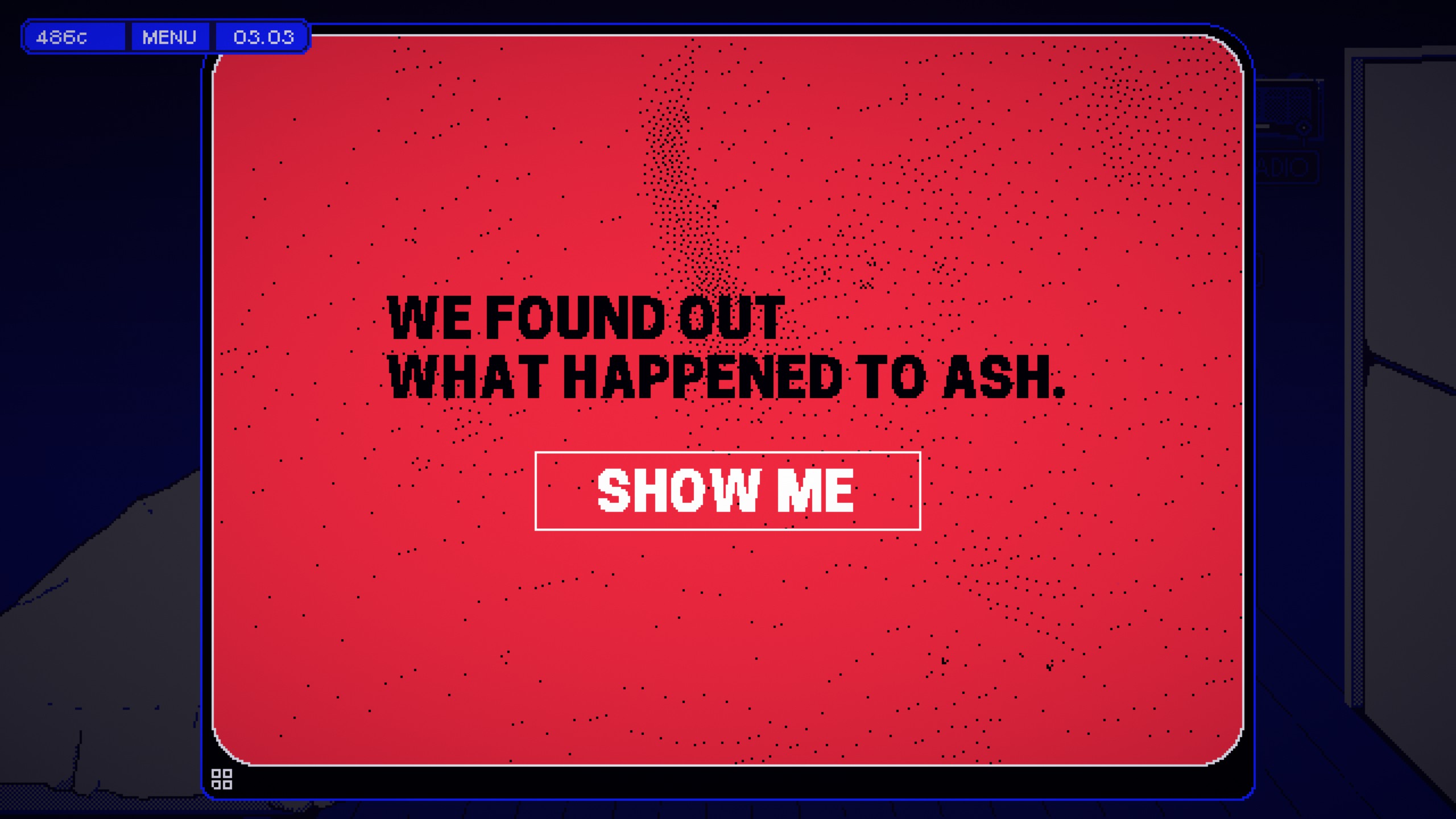A normal day goes like this:
I walk into my room after work. Pass the radio, turn on lofi beats to work to, sit down, open my desktop, check my bills, open the news:
“Find out why more inflation is good for you and the economy.”
I don’t really know what I expect from the same paper that condescends to lower class workers in debt, but I have a few DMs and a daily log-in bonus to collect.
Nes is getting disillusioned with the grind, thinks the fighting game we’ve been playing maybe isn’t really skill-based. He’s put a lot of time into it. Every day after work. Just bought a fancy new gaming chair to improve his performance too (the claims seem unfounded). Fin messaged me, but I can’t keep up the small talk with him. He’s too eager, too pleased, always excited about whatever the fuck new tech we can’t afford he’s just read about.
I pull up my phone, scroll through the forums. DelectableMelon is complaining that rent used to only cost 100 credits and now it’s over 300 and food’s more expensive and none of our wages have increased. I don’t know for sure. I just started here this quarter. Well, not really. I was born here, in this tower—a descendant of the founders of the Ringo Corp, the first ever CorpoNation.

CorpoNation is ostensibly a point-and-click game about your sorting job in the genome sector of its titular capitalist state, a dystopic island nation that’s something like the logical endpoint of neoliberal austerity and Elon Musk’s wet dreams. With much inspiration from speculative and science fiction, it's in the how CorpoNation puts players in its world that it feels like a stellar work of interactive fiction.
Because really CorpoNation is a collection of games. There's your sorting job in the company's genome sector, moving genetic samples of unknown origin into corresponding pneumatic tubes of unknown destination. Sort by shape, description, number, or pattern. Memorize their variants. Remember your manager’s latest directives. The more you can move in the shift, the more you’ll earn. You need those credits to pay rent. Worse, you’ll get rebuked in your performance review if you’re merely satisfactory.
Then there are the “state-sanctioned” games on your Windows 95-era desktop—a pointedly antiquated UI that says something about the world. Ultimate Ringo Fighters is a comically monetized game complete with a unique currency (crystals, of course) you can use your actual credits to buy. It has seasons, daily quests and log-on bonuses, endless cosmetics, absolutely broken pay to win mechanics, and very little actual gameplay. Through character writing it becomes a pointed commentary on how games have a role in placating exploited workers while further exploiting them.
And after my first promotion I also unlocked (or, I was granted access to) solitaire. I was told it’s to help with my dexterity and make me a better worker, which is supposed to motivate me to play it. The spam emails about not playing it are also supposed to do that. And it’s really just your sorting job, but with cards—a work sim game with all the alienation still attached.

But there are all these other systems that say so much about propaganda, surveillance, and solidarity. I know I’m being monitored. I was told I answered an anonymous survey question wrong. My state-mandated social cluster keeps changing because people get reassigned for breaking rules. I could report them through the app on my computer, but I haven’t. I got reprimanded for having some paraphernalia this union syndicate called Synthesis left for me. They found it in my room while I was at work.
So I took Synthesis’ offer, and now I have a contraband phone with forums and messages and something like Venmo. And I can choose to take on assignments they ask of me, which usually hamper my workday and make getting promoted harder, but I do want to know what these samples are, what they’re being used for, where they took Ash.
And really, I could keep going on about all the little touches. There’s a synergy to all these systems and games that come together to really put players in the rhythm of a work day, and it’s all held together by its prose. The snarky forums posts, terminally online coworkers in your DMs, managerial rebukes in your inbox, and, my favorite, the news. The news app on the desktop is a collage of condescending headlines from the New Yorker or Atlantic. It’s not just the out-of-touch pretension of the opinion sections, though. Most of the stories are like the sponsorship articles that run alongside their journalism (I get the impression the duo of Canteen Studio really like Manufacturing Consent).

It would all be too blunt if it wasn’t presented through your choice to interact with the world mediated through this corporate UI, if there weren’t varied reactions on the illicit forum, if there weren't accompanying articles to those headlines that are infuriating to the point of hilarity.
That’s what’s smart about the otherwise generic adaptation of the dystopian short story to interactive fiction. CorpoNation gets that it’s all so banal. You could call it silly, even, if it wasn’t so absurd. It’s not Brave New World, it’s Sorry To Bother You. It’s the stupid dystopia we find ourselves in now.






